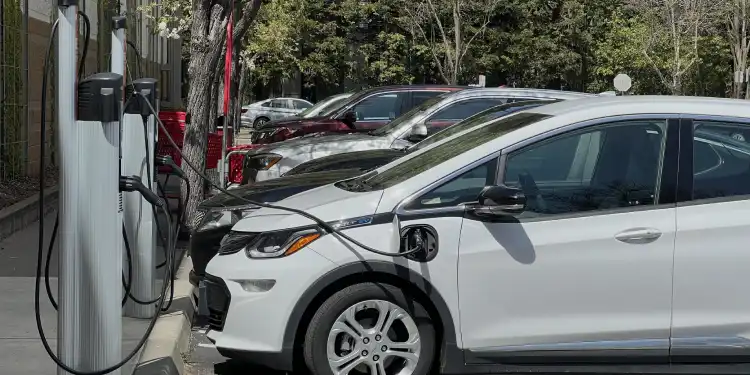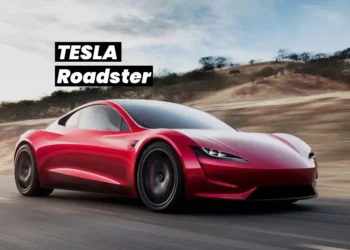Table of Contents
All You Need To Know About Electric Cars
1. How Does An Electric Car Work And What You Should Know Before You Buy One?
Alright, gearheads, let’s dive into the electric circus. Now, these electric motors, they’re the wizards of the future, turning juice from batteries into pure kinetic magic for those wheels. And guess what? The torque party starts right from the get-go, delivering that grin-inducing driving pleasure, even if you’re not summoning the full power beast. No gearbox hassle, that’s the beauty of having torque spread across more speeds than you can count. And, here’s the kicker, they’re so darn quiet, it’s like a stealth mission on wheels, and no, there’s no exhaust smoke spoiling the spy drama.
Now, charging, my friends, that’s the hiccup in this electric fiesta. It takes longer than your standard petrol pit stop, and on those cross-country cruises, you better have a solid plan because breaks are not just for snacks anymore. Environmental halo? Yeah, it’s there, but don’t pat yourself on the back too soon. The green factor depends on where the juice for these machines is coming from. Charging up with coal-fired electricity isn’t exactly saving the planet, you know what I mean?
And don’t let me forget the battery blues. Those lithium-ion wonders lose their mojo over time, but hey, the tech geeks are on it. There’s hope for better batteries, meaning less range anxiety. Now, about the money sure, electric cars might hit the wallet harder upfront, but trust me, in the long run, they’re the Scrooge McDucks of the automotive world. Lower fuel and maintenance costs mean you’re laughing all the way to the electric bank. So, there you have it, the electric saga it’s a wild ride, my friends, and we’re just getting started!
2. Electric Car Options and Charging Infrastructure?
Now, let’s break down the electric scene. The range game is expanding like crazy, giving you more options than ever. Need a nimble city zapper or a commuter companion? Snag one of those small electric wonders with around 200 kilometers of range perfect for quick in-and-out trips. Now, if family life and the occasional road trip are on the agenda, look for the 300 kilometer heroes; they’ll keep the wheels turning for your everyday hustle.
Now, here’s the kicker: you don’t need a fancy home charging setup to own an electric ride. Public charging stations are popping up everywhere, from supermarkets to hardware stores, making juicing up a breeze. But, and there’s always a but, the speed of these charging stations varies. Thankfully, fast charging is becoming the norm, slashing wait times and turning those long journeys into a breeze.
Here is what you need to keep in mind, charging at home might be a budget-friendly affair, but hitting up public stations can sometimes hit your wallet harder. So, when you’re eyeing that electric dream car, don’t forget to crunch the charging cost numbers.
3. How Much Do Electric Cars Cost?
The 2023 Chevrolet Bolt starts at just $26,500, and Tesla model 3 starts at $38,990. But hold on if you choose to go electric SUV, pickup, or those high-performance cars the price can easily break the bank, soaring past the $100,000 mark. But hold onto your hats this time, because the price game is changing faster than a Formula 1 pit stop. Sure, many EVs still carry a higher price tag than their gas-guzzling counterparts, but that gap is narrowing year by year.
Here’s the real trick, don’t just stare at the sticker shock. Consider the long game. Factor in the fuel savings, the lower maintenance costs, and those sweet purchase incentives. It’s like playing poker with the green machines, and trust me, you want to stack the deck in your favor.
And here’s the sweet icing on the electric cake: federal, state, local, and utility incentives are raining down like confetti. From compact hatchbacks to full-size pickup trucks, the electric buffet is open for all tastes. But, and there’s always a but, not all listed models might be ready to roll off the showroom floor. Limited inventory and potential dealer markups might throw a wrench in your instant EV gratification.
4. Do electric cars really require less maintenance?
Get ready for the low maintenance joyride of your life, because electric cars are rewriting the maintenance playbook. Forget the headaches of oil changes, filter swaps, and timing belt roulette electric rides are shedding parts like a minimalist’s dream. The real stunner? Maintenance costs for these silent speedsters are estimated to be a third cheaper than their combustion engine counterparts. It’s not just a wallet win; it’s a financial knockout. Why the magic? Well, electric cars ditch the internal combustion engine chaos, throw in regenerative braking wizardry, and pack batteries built for the long haul.
5. Electric car as a company car – is that a good idea?
Rev up your corporate fleet, decision-makers, because considering electric cars as company vehicles is not just a good idea, it’s a financial and environmental power move. First up, tax benefits. Electric cars often come with significantly lower company car tax rates than their gas-guzzling counterparts, putting some serious savings in your company’s pockets. And let’s talk fuel costs, with the constant rise in fuel prices, electric cars are the budget-friendly superheroes, saving your company a bundle over the vehicle’s lifetime.
Now, think green. Electric cars boast zero tailpipe emissions, giving your company a chance to strut its eco-friendly stuff and carve out a cleaner image. But it’s not just about saving the planet; it’s about the thrill. Electric cars deliver instant torque, turning the daily commute into a joyride. That kind of performance boost can do wonders for employee satisfaction and productivity.
And of course reduced maintenance is an advantage. With fewer moving parts than their gasoline counterparts, electric cars demand less attention in the repair shop. That means more time on the road and less downtime for your corporate warriors. So it is not just about being green; it’s about being savvy, cost-effective, and performance-driven.
















